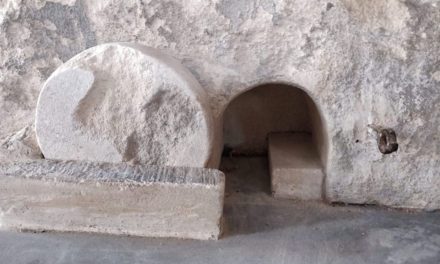It is an understatement to say that my beloved country Nigeria, the largest black nation on earth blessed with almost every known mineral resources is in crisis.[1] The question is what type of crisis? The quick answer would be economic and political crisis. Leading academics Daron Acemoglu and James Robinson in their book, Why Nations Fail: The Origins of Power, Prosperity and Poverty, provides a helpful reflection on the state of things in Nigeria. According to them, the nations are failing not due to ‘climate, geography or culture, but institutions.’ Acemoglu and Robinson shows that to invest and prosper, people need to know that if they work hard, they can make money and actually keep it – and this means sound institutions that allow virtuous circles of innovations, economic expansion, more widely-held wealth, and peace. The truth is that a theology of institution points to incubators of innovation, reconciliation and redemption. David Harts’s book ‘Atheist Delusions: The Christian Revolution and Its Fashionable Enemies argues that Christian institutions are founded on love of neighbour and the only genuine revolution in Western history. Among the unmatched moral triumphs of the church is its care of widows and orphans, its alms houses, hospitals, foundling houses, schools, shelters, relief organisations, soup kitchens, medical missions, and charitable societies.
The colonial era of Nigeria was not without some negative carry overs including a seemingly imported modern style of bribery, divide and rule, and corruption. In 1960 Major Chukwuma Nzeogwu aptly summarised the effect of the carry overs on our leadership. According him, ‘our enemies are the political profiteers, the swindlers, the men in high and low places that seek bribes and demand 10 percent, those that have corrupted our society and put the country back by their words and deeds.’ The divisions, inequalities alongside ongoing battle against insurgent/militant groups and war against high levels of corruption continue to contribute to the current crisis in Nigeria.[2] Chinua Achebe helps to understand the root cause of our problem: ‘the trouble with Nigeria is simply and squarely, a failure of leadership. There is nothing basically wrong with the Nigerian land and climate or water or air or anything else. The Nigerian problems are the unwillingness or inability of its leaders to rise up to the responsibility, or the challenge of personal example, which are hallmarks of true leadership.’[3]
 A friend of mine, Adebimpe Adegoke provides a good reflection on Nigeria crisis: ‘the hardship faced by many Nigerians is simply as a result of the fact that almost everyone of us benefited from the cycle of corruption … The fact is, a lot of people are returning to what someone referred to as ”default mode”. We mostly have been living above our REAL MEANS. We have been staying in houses that ordinarily our incomes can’t afford. Our children going to schools we can’t afford. Driving cars we ordinarily can’t maintain. We have been living a FAKE LIFE all along. Now the reality is before us and we don’t want to accept it. This shows how morally bankrupt we are.’ You got billions from bank without collateral using your political influence. You put half into your business and spent the other half on exotic cars, You get illegal waivers and concessions to import raw materials at rock bottom prices, you get over-inflated contract to supply government some goods your company produce … in short your company is kept afloat by corruption .. The truth is … you and your company were never in business, you were only feeding off the system. Too many companies and banks are funded by corruption. Remove corruption from the system and they collapse … and we end up blaming the person that removes corruption for the collapse of the corruptly run fake company. It’s like our system and corruption are so interwoven and inseparable that removing one will kill the other. Should we tolerate and learn to live with corruption so that Nigeria can survive? Corruption in Nigeria affects institutions and influences individual behaviour at all levels hence it undermine government efficiency and trigger social and political unrest.’
A friend of mine, Adebimpe Adegoke provides a good reflection on Nigeria crisis: ‘the hardship faced by many Nigerians is simply as a result of the fact that almost everyone of us benefited from the cycle of corruption … The fact is, a lot of people are returning to what someone referred to as ”default mode”. We mostly have been living above our REAL MEANS. We have been staying in houses that ordinarily our incomes can’t afford. Our children going to schools we can’t afford. Driving cars we ordinarily can’t maintain. We have been living a FAKE LIFE all along. Now the reality is before us and we don’t want to accept it. This shows how morally bankrupt we are.’ You got billions from bank without collateral using your political influence. You put half into your business and spent the other half on exotic cars, You get illegal waivers and concessions to import raw materials at rock bottom prices, you get over-inflated contract to supply government some goods your company produce … in short your company is kept afloat by corruption .. The truth is … you and your company were never in business, you were only feeding off the system. Too many companies and banks are funded by corruption. Remove corruption from the system and they collapse … and we end up blaming the person that removes corruption for the collapse of the corruptly run fake company. It’s like our system and corruption are so interwoven and inseparable that removing one will kill the other. Should we tolerate and learn to live with corruption so that Nigeria can survive? Corruption in Nigeria affects institutions and influences individual behaviour at all levels hence it undermine government efficiency and trigger social and political unrest.’
One of the major foundational problems with Nigeria is that our history is based on extractive political and economic institutions and the question is why is the church in Nigeria not promoting a genuine revolution and renewal? Why are the people becoming government agent when the government should be the peoples agent? Since our independence in 1960, those who have been dominating our political and economic horizons are mainly those who have been in and out with colonial and military regimes, hence our extractive and militaristic thinking and tendencies where force and greed are the primary weapons of choice and leadership.[4] Quoting the former President Olusegun Obasanjo, Yusuf Ali explained that, ‘one of the greatest tragedies of military rule … is that corruption was allowed to grow unchallenged and unchecked..,’ including ‘settlement’ syndrome.[5] The effect of this systemic corruption is what Professor Omotayo Olorode called the ‘Trillema of the Nigerian situation’ – Primitive Accumulation, Corruption and Violence. [6]
Social injustice including a situation of pervasive extreme poverty on most Nigerian faces is the most devastating and humiliating kind of scourge, for example the crisis of infant mortality, the housing shortage, health problems, starvation wages, unemployment, malnutrition, no job security, and so on. What about the ‘faces of the underemployed and the unemployed, who are dismissed because of the harsh exigencies of economic crises, and often because of development-models that subject workers and their families to cold economic calculations; —the faces of marginalized and overcrowded urban dwellers, whose lack of material goods is matched by the ostentatious display of wealth by other segments of society; —the faces of old people, who are growing more numerous every day, and who are frequently marginalized in a society that totally disregards people not engaged in production.’[7]
Moral deterioration is on the increase where individualistic materialism and consumerism, with its unbridled ambition to ‘have more,’ [which] is suffocating the people and the nation with decline in the Christian values of generosity and austerity. The deterioration of basic family values [which] is disintegrating family communion, eliminating shared and responsible participation by all the family members and making them an easy prey to divorce or abandonment. Information is manipulated by various authorities and groups by promoting and creating false news and expectations.
It could be said that the Nigeria crisis has much to do with the church disunity; failure of renewal and adaptation; disregard for the criteria laid down in the gospel. The church as counter-cultural is called to unmasked the idolatries in our societies rather than becoming the idols in our societies. According to Lesslie Newbigin, the church is the bearer to all the nations of a gospel that announces the kingdom, the reign, and the sovereignty of God. It calls men and women to repentance of their false loyalty to other powers, to become believers in the one true sovereignty, and so to become corporately a sign, instrument, and foretaste of that sovereignty of the one true and living God over all nature.’[8]
The truth is that, the redemption of Nigeria will not be determined by the party or denominational affiliations ‘unless we are first transformed by the renewing work of the Spirit who renews everything.’[9] The church is called to raise ‘men of Isaachar who understood the times and knew what Israel (Nigeria) should do’ (1 Chr 12:32). The church and its leadership must repent, convert and renew itself first to this, if it is to fulfil its mission of evangelization. It is time we offer that which is primary in accordance with the gospel and not just perishable gold or silver. The church must repent from betraying its own love for God and its fidelity to the gospel by not stopping ‘being the voice of the voiceless, a defender of the rights of the poor, a promoter of every just aspiration for liberation, a guide, a discipler of every legitimate struggle to achieve a more just society, a society that prepares the way for the true kingdom of God in history. This demands of the church a greater presence among the poor. It ought to be in solidarity with them, running the risks they run, enduring the persecution that is their fate, ready to give the greatest possible testimony to its love by defending and promoting those who were first in Jesus’ love without unfair discrimination between the various classes of society.’ Regardless of of our ethnic differences, the church must rise to condemn structural or institutionalized violence and protests in Nigeria as it deprives people more of the necessities of life.
Nigeria is not beyond redemption, even during this recession, there are many positive signs. There is balm in Gilead for our healing. The healing and redemption of Nigeria must start with the church, the ekklesia, people set apart, called and sent as the pillar and foundation of God’s truth. The church in Nigeria ‘cannot without guilt absolve itself from the responsibility, where it sees the possibility, of seeking to shape the public life … and ..ordering of industry and commerce in the light of the Christian faith. It is the duty of the church to first purge itself and repent in order to be able to bravely and effectively remind the government ‘whether they know him or not – Christ is the judge before whom they must stand in the end to give account of their stewardship of the power he gave them.’[10] According to the former Archbishop of Canterbury, Rowan Williams, the Church ‘ … is of course an eschatological sign. In its sacramental practice, it displays what the realised purpose of God will be: ‘Christ in you, the hope of glory’ in the Eucharistic community is the foreshadowing of God as ‘all in all’ at the end of history’ (1 Cor.15.28).[11] The classical and familiar Nigerian language about the kingdom of God has been used to domesticate and culturalize Christianity and denominational world-views. Seeking the kingdom of God through a pious colouring of our dominant prosperity theology is more than social or material progress. Closing with the words of Newbigin, ‘a church that sees the cross of Jesus as the central event of history can never identify any political order with the reign of God.’ Human being has a sinful nature which no social or political order can remove, including Sharia. The ideal of a perfect nation is an illusion without the knowledge of the Cross, the death and resurrection of Jesus.
[1] Okegbile, Deji, Healing of the Land: A Call to Nigerian Rebirth (Osu: Joy Communication, 2007) p. 5
[2] http://www.responsibilitytoprotect.org/index.php/crises/crisis-in-nigeria
[3] Achebe, Chinua, The Trouble with Nigeria (Enugu: Fourth Dimension Publishing, 1983), p. 1
[4] Williams, Ishola, ‘Corruption and Challenges of Followership, Leadership and Governance in Nigeria’ in Stand Up for What is Right (Fawehinmi Lecture Series 2005-014), p. 66
[5] Obasanjo, Olusegun in Ali, Yusuf, ‘Corruption and Electoral Process in Nigeria,’ p. 79
[6] Williams, Ishola, ‘Corruption and Challenges of Followership, Leadership and Governance in Nigeria’ in Stand Up for What is Right (Fawehinmi Lecture Series 2005-014), p. 75
[7] The Church’s Mission amid the National Crisis Fourth Pastoral Letter of Archbishop Romero, Feast of the Transfiguration, August 6, 1979
[8] Newbigin, Lesslie, Foolishness to the Greeks: Gospel and Western Culture (London: SPCK, 1986), p. 124.
[9] Edwards, Joel, An Agenda for Change: A Global Call for Spiritual and Social Transformation (Grand Rapids: Zondervan, 2008), p. 11
[10] Newbigin, The Foolishness of the Gospel, p, 129
[11] Williams, Rowan, The church as sacrament, International Journal for the Study of the Christian Church Vol. 10, No. 1, February 2010, 6–12, http://people.bu.edu/joeld/church-sacrament.pdf










God will continue to strengthen you sir and heal our land(Nigeria) in Jesus mighty name amen.
Bless you my dear sister.
Nigeria will surely come alive in Jesus name. God bless Nigeria.
Spot on. People are screaming and wailing in Nigeria because of hardship, hunger and lack of money. However like your piece says, our people have been living a fake life. To ‘birth’ change is not going to be easy. The sooner our people realise this, the better we will be able to accommodate and support the change process. For the Church in Nigeria, well, I think its best I reserve my comment for another day.. suffice to say that our Spiritual Leaders have turned blind eyes to their Bible that says ‘judgement will begin in the house of God’. May God continue to bless Nigeria and have mercy on us, Amen!
More Grace to you and more grease to your elbows in the mighty name of Jesus. The Truth from the Source-Being flowing through the power- given Ecclesia brings lasting freedom to the expectant people. The eagerness of God is ready. We too must be willing and ready. The time is short!
Thank you dad. We covet your prayers.